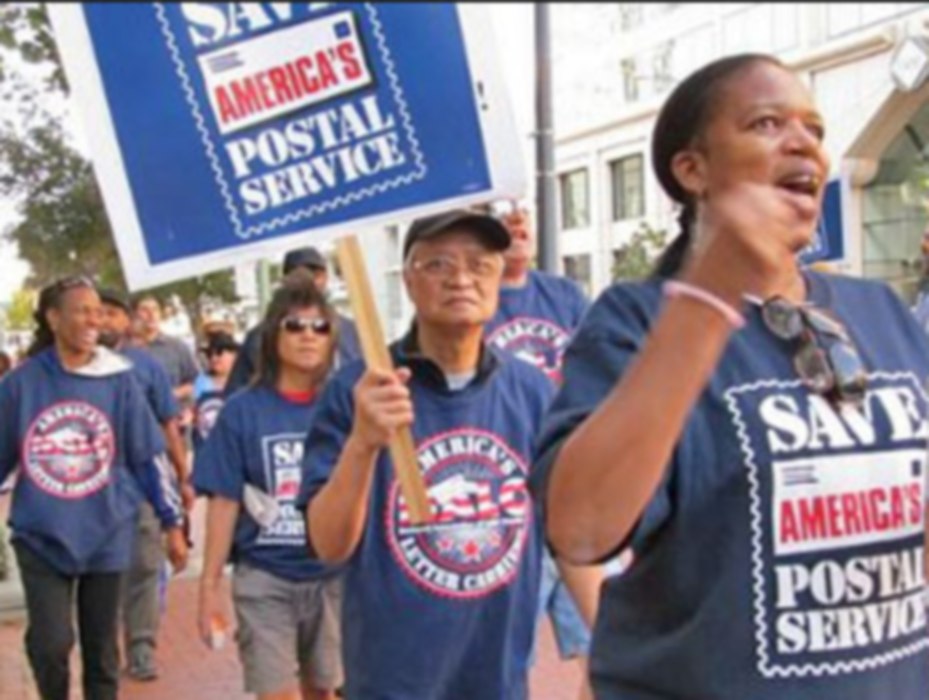The plot surrounding the rescue of the U.S. Postal Service only seems to thicken. Republicans take control of the Senate in the midterm elections, leaving Sen. Tom Carper (D-DE) the short window of a lame duck session to guide passage of his Postal Reform Act, his chairmanship of the Homeland Security & Government Affairs Committee soon to fall to Sen. Ron Johnson (R-WI). Postmaster General Patrick Donahoe, the standard bearer of the campaign to right-size and renovate the Post Office, announces his retirement. Meanwhile, Big Mailers and postal union officials meet behind closed doors to write their own ending to the story—one that would keep six-day delivery and guarantee next year’s rollback of the exigent price increase as stipulated by the Postal Regulatory Commission (PRC).
Will Postal history repeat with the passage of a lame duck bill? Will the setting of the reform agenda pass from the Carper and Donahoe into the hands of new PMG Megan Brennan and Johnson in the 114th Congress? Will the unlikely duo of Big Mail lobbyists and postal union officials draw the drama out further?
Not if the lobbyists who helped forge the accord have their way. “We have a sense from the [Congressional] offices we’ve talked to that they see lame duck as the time for postal reform,” said Benjamin Cooper, one of the leaders of The Coalition for a 21st Century Postal Service (C21). “Postal has a history with lame duck. It happened in 2006.”
Cooper and fellow C21 officer Arthur Sackler first met with union officials in the fall of 2013 to see if they could work out a plan for reform beneficial to both parties. Both were in agreement on seeking relief for the postal service from its $5.7 billion annual obligation for pre-funding the retiree healthcare benefits program. And while neither party would be specific in what proposals they made to members of Congress, industry sources have affirmed that mailers would be OK with keeping Saturday delivery if unions favored sticking with the PRC plan on rolling back exigency. Sackler and Cooper said that both sides have worked at keeping their proposal flexible so as to generate discussion on the Hill and inspire immediate action on reform.
“Basically what we did was pull together to the two major stakeholders outside of the Postal Service and put together a package that stays fluid,” Sackler said. “It’s a deal where both sides are willing to make simple concessions that are in the interest of preserving the Postal Service.”
That third and very important stakeholder chose not to get involved for a few good reasons. One, according to mailers, is that the Carper’s bill—written with committee Ranking Member Tom Coburn (R-OK)—is a veritable USPS wish list. The other is that a mailer-union proposal to invest the healthcare benefit funds in a trust and use the proceeds to help fund postal operations is unacceptable to senior management at USPS.
Asked by Direct Marketing News why the Postal Service hadn’t joined in talks with the mailers and the unions during today’s earnings call, PMG Donahoe replied that the investment plan was not fully thought out. “I’m not so comfortable taking a fund we have sweat, blood, and tears over and rolling the dice in the stock market [with it],” Donahoe said. “We’re interested, and we’ve told them that, but before we’d ever sign on, we’d want to see that plan thoroughly vetted by people who really know what they’re talking about and not just a couple of people slapping a bill together on the Hill. That’s why we will not sign on until we are thoroughly convinced that that the 95% funded that we have on our healthcare plan is thoroughly protected for our employees going into the future.”
The union-mailer group, meanwhile, is certain its plan is a safe one. “We have a balanced approach to stabilize USPS financially in this deal,” Sackler said. “Not only is it patterned on conservative investments already permitted by law and used by a number of federal entities, but there are built-in safeguards to ensure no bailout would ever be needed. There’s only one set of numbers to look at here: 2.2%, which is the rate of return on the Treasury investments now permitted, and 5%, which is the rate of growth of healthcare costs for USPS retirees. If those don’t change, a government bailout of the Postal Service will be inevitable.”
C21’s approach for the lame duck session is minimalist: Pass a bill that provides the Postal Service with the financial relief it so desperately needs and take it from there in the new Congress. “Then we’d have room for a pretty wholesome debate that would make sure the Postal Service was prepared for the future,” Sackler said.
“It’s inconceivable,” Cooper added, “that Congress could ignore something that is wanted by both the mailers and the unions.”






